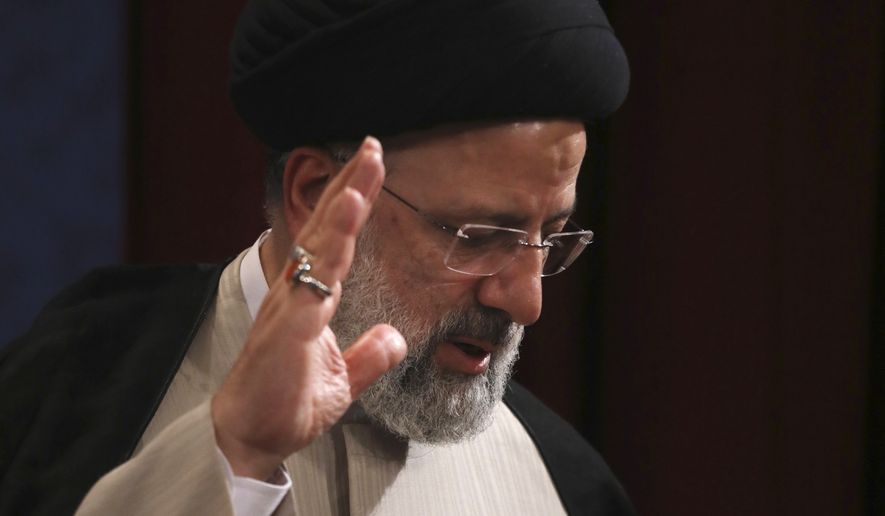U.S. forces on Sunday night launched three airstrikes against Iran-backed militias in Iraq and Syria, Pentagon officials said, calling the action a “clear and unambiguous deterrent message” to Tehran and its proxy groups in the region.
The airstrikes targeted facilities used by the groups Kata’ib Hezbollah and Kata’ib Sayyid al-Shuhada, both of which have launched drone attacks against American personnel in the region.
In a perhaps related incident, the Associated Press reported Monday that U.S. troops in eastern Syria came under rocket attack Monday. There were no reported injuries, but Iranian military and paramilitary units have long been operating inside Syria in support of the regime of President Bashar Assad. U.S. officials in Baghdad confirmed the salvos and said U.S. forces in Syria responded in self-defense with artillery fire at the rocket-launching positions.
The Pentagon classified Sunday evening’s strikes as “defensive precision airstrikes,” suggesting that military leaders believed more attacks against U.S. troops may have been looming.
“President Biden has been clear that he will act to protect U.S. personnel,” the Defense Department said in a statement. “Given the ongoing series of attacks by Iran-backed groups targeting U.S. interests in Iraq, the president directed further military action to disrupt and deter such attacks.”
“The United States took necessary, appropriate, and deliberate action designed to limit the risk of escalation — but also to send a clear and unambiguous deterrent message,” the Pentagon said.
Indeed, Iran-backed groups have regularly targeted U.S. military personnel in the Middle East in recent years.
The president, returning to the White House Sunday night from a weekend at Camp David, didn’t respond to reporters’ questions about Syria.
The strikes targeted two operational and weapons storage facilities in Syria and one in Iraq. The bombings appear aimed to limit the militias’ ability to target American troops in the future.
A reporter with the state-controlled Syrian Arab News Agency said a child had been killed and three other civilians wounded in the strike near the border town of al-Bukamal, but that account could not be confirmed independently.
It’s at least the second time Mr. Biden has ordered direct airstrikes against the Kata’ib Hezbollah group. In February, he ordered the bombing of the militia’s facilities in Syria, just across the border with Iraq.
Sunday’s attacks come amid diplomatic talks between the U.S., Iran and other world powers about the future of Tehran’s nuclear program. The Biden administration is seeking to reinstate an Obama-era agreement that limited Iran’s nuclear-weapons program in exchange for the lifting of economic sanctions.
Former President Trump pulled the U.S. out of that deal in 2018.
Mr. Biden’s critics have taken aim at the diplomatic engagement with Iran partially because of Tehran’s continued backing of dangerous militia groups, including the two organizations targeted on Sunday.
Iran condemned the U.S. strike Monday in relatively restrained terms. Foreign Ministry spokeman Saeed Khatibzadeh told a Monday press briefing in Tehran that the U.S. government “is still following a wrong path in the region” by sticking with the pressure tactics of the Trump administration.
“Unfortunately, what we see is that the [Biden] administration continues with the failed American policies in the region not only n the issue of sanctions, but also on regional policies,” the spokesman said. “… What the U.S. is doing is upsetting security in the region, and it itself will be one of the victims of such insecurity,” he said.
• Ben Wolfgang can be reached at bwolfgang@washingtontimes.com.




Please read our comment policy before commenting.